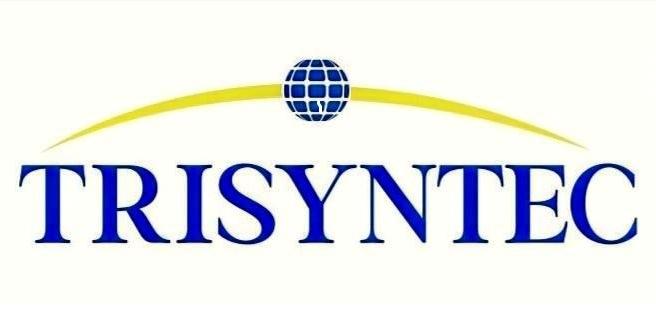
Due to major world events, it became necessary to change how clinical trials were performed. Such a need has driven an industry-wide push toward utilising a different approach to traditional trials. The implementation of decentralised clinical trials (DCT) had become a must in order to obey new social requirements while continuing to conduct vital research. During this period, this new way of performing clinical trials managed to solve some major problems that conventional clinical trials were facing, such as the high rate of dropouts, as 85% of conventional clinical trials failed to retain enough patients. Not to mention that in 50% of clinical trials, participants find it challenging to stay enrolled due to poor health.
Accessible to Everyone
A traditional clinical trial is designed around the research centres, where members of the clinical operations team monitor the trial data of a local population. In order to complete the study, participants must travel to the site very often. This process may cause appreciable disruption in their daily activities. On the other hand, DCT employs a patient-centred approach by leveraging virtual tools and wearable devices to carry out remote visits and monitor data. Therefore, making participation in the trial much more accessible by allowing participants to submit data from anywhere and having blood draws performed at home. This eliminates the need to make frequent travels to the clinical site, making it more convenient for the participants, considering that it is estimated that 70% of patients live more than two hours away from the research site. As Rajan Jethwa, CEO at Ellipses Pharma, UK, said at the Healthcare Forum held by the Global Investment Leaders Club, “the biggest advantage of decentralisation is that it increases the participation from people who aren’t able to get to the trial centres”. Hence why the adoption of decentralised clinical trial platforms has skyrocketed. 76% of patients reported using telehealth as a replacement for cancelled healthcare visits in 2020, a massive increase from the 11% reported in the previous year.

Better Patient Recruitment and Retention
Research also found out that decentralised clinical trials have the potential to drastically improve the recruitment and retention of each study participant. As we all know, patient recruitment and retention remain the primary hindrances to the success of clinical trials. In 2018, 60% of studies failed to recruit sufficient numbers of participants, leading to less conclusive results and delays in the completion of the studies. But with the use of decentralised clinical trials, it was noted, after analyzing various studies, that this approach has a dropout rate of less than 30%. Such a substantial increase in patient recruitment and retention is the reason why more than three out of four life science organizations reported the use of decentralised clinical trials. Out of those, 38% indicated that the majority of their trials are decentralised because of their advantages in patient retention and improved data diversity in comparison to regular clinical trials. As Joshua McClure, CEO at Maxwell Biosciences, US, said at the GILC Healthcare Forum, “the growing use of decentralised clinical trials will lead to dramatic results in future studies.”
Technology Use and Expenses
Even though decentralised clinical trials bring a lot of benefits, they also come with their fair share of challenges in their implementation. For instance, decentralised trials require technology that can quickly transfer data from wearable devices or remote locations to research sites. But research sites might run into trouble trying to find secure, private technology designed for decentralised trials. Developing such technology is an option, but according to a Florance State Survey, 68% of research sites, sponsors, and CROs said they worried about the cost of developing new technology specialized for decentralised clinical trials. In a recent presentation to ACRP, Ken Getz of the Tufts Center for the Study of Drug Development also showed that unclear returns on investment were the number one concern about investing in such technologies. As Savvas Neophytou, CIO at Deepbridge Capital LLP, UK, mentioned at the GILC Healthcare Forum, “It comes to a matter of adaptability. For instance, due to recent world events, we were able to get vaccines out quickly when we needed to, and the same can happen with the technology and process required for the decentralisation of clinical trials.”

DCT comes with an array of benefits, but it also brings a variety of challenges. In order for research sites to run successful decentralised trials, both patients and staff need to understand and have access to secure and specialised technology. Clinical trial sites should design flexible yet effective protocols to properly and securely manage all of the data they receive. Furthermore, decentralised clinical trials are more than just an alternative the industry is adapting to. Many professionals have already proved that with intuitive technology and innovative thinking, they can overcome such challenges and run effective, flexible, decentralised trials.
These insightful viewpoints were shared by the healthcare industry leaders during the panel discussion at the Healthcare Forum held by the Global Investment Leaders Club, which is an exclusive community of active investors from all around the world. The Club’s goal is to build trustful connections between investment leaders through generations. GILC members are the heads of single-family offices, VC/PE companies and private investors. In the Club, investors expand their exclusive network of people who really care about changing the world in a very positive way through investing and building powerful connections with like-minded investors, accessing knowledge and resources that greatly benefit their businesses. To be part of this great investors community, register for upcoming Club’s events.
This article was featured on Health News Tribute.




